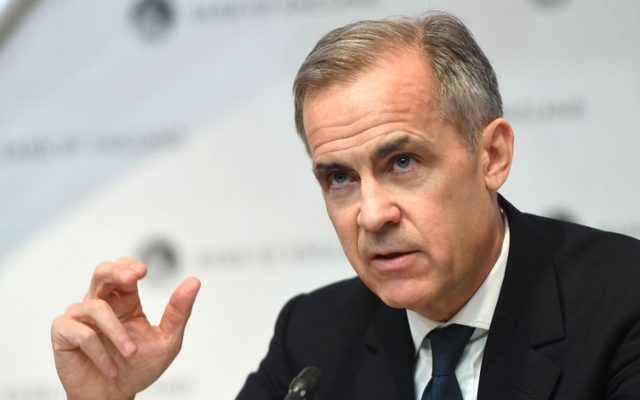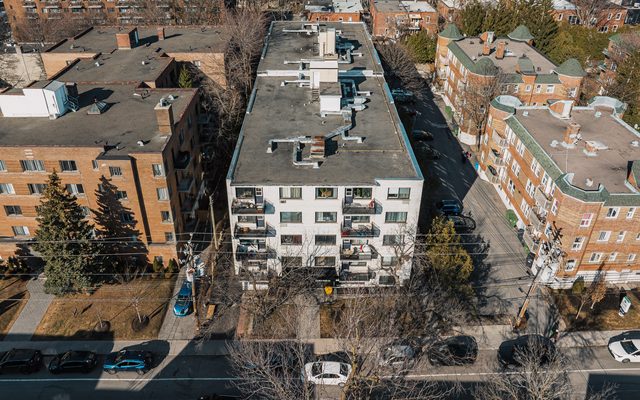John-Bosco Agbasi was recently named managing director of asset management at Fengate Asset Management, where he is responsible for the company’s commercial and residential portfolios.
The appointment comes after Fengate entered the B.C. marketplace earlier this year with the purchase of two retirement communities in Vancouver for a combined $180m. Previously he worked at Carttera and GWL Realty Advisors.
Green Street News spoke with Agbasi about his new role, what the coming year has in store for Fengate and diversifying the firm’s portfolio geographically.
How do you view your new role at Fengate compared to your previous roles in the past?
I’ve assumed responsibility for both commercial and residential asset management, which includes oversight of asset management functions, property management, our leasing teams, sales and marketing, investment strategy, capital raising, risk management, portfolio structure, fund management, analytics and stakeholder relations. Taking a step back and looking at my previous roles, I would say in many ways this is a combination of those past assignments.
I was previously at Carttera, and thinking about my time there, my role was asset management and leasing, but from a developer’s lens; understanding the full development cycle from land acquisition to disposition of a fully leased asset. At GWL Realty Advisors, which was more of a traditional institutional shop, I would say my role was more core portfolio focused – income producing properties, thinking a lot about protecting our downside and delivering returns through all parts of the cycle.
Looking at my role today, it’s a mix of both those previous positions. We have a sizable core portfolio, but Fengate is also an at scale developer with a residential pipeline of over 25,000 units and over 200 acres of industrial development lands.
Are we going to see any bold changes in the approach to asset management?
Short answer is no. Fengate has a long history of delivering excellent returns, not just for our investors, but for all our stakeholders and for the communities that we invest in. I plan to continue that.
From a personal perspective, in terms of my own approach to leadership, I lead with humility. It’s very important to me. I prioritized the growth of our program and my team first, and I’m very focused on empowering my staff and building strong relationships across our ecosystem. That’s something I’ll bring to the role.
Will there be further expansion into the Vancouver market?
We would love to add to our B.C. book. I will be heading out there in a few weeks for a conference and I’ll be seeing some sites.
We will continue to diversify and build out our portfolio, not just B.C. but across Canada and North America. We’d like to include in that, expanding our presence in B.C. and specifically with this Seasons Retirement Communities portfolio.
We think B.C. is a great market for expansion and tuck-in acquisitions due to the strong demographics and socio-economic fundamentals there. The population’s ageing and there’s a lot of need and demand for exactly that type of elevated product.
What do you see as the ideal investment for Fengate?
We invest in high-convention verticals. Before we look at a specific asset, our focus is paying attention to structural demand drivers and long-term demographic trends. And what that means, in bringing it down to the ground, is we think a lot about AI, we think a lot about big data and population growth, we think about ageing demographics and all the trends that are driven out of that.
That’s why we like industrial and logistics. And that’s why we like seniors. That’s why we like residential. At an asset level, we like transit-oriented locations and locations that also have other defensive attributes, such as proximities to schools and highways. We spend a lot of time thinking about mega trends that are driving demand going forward.
“At Fengate, our investments are successful because of the teams we build around them”
At Fengate, our investments are successful because of the teams we build around them. We spend a lot of time working with our development partners, project teams and our investors. You could have a great asset, but if you don’t have the right partners or you are not doing your homework on the ecosystem around that asset, then you may not see the results that you’d expect. I think for us, looking at all of that is what makes you successful.
Do you have any predictions for 2025?
We can expect some market volatility, especially in the U.S., while Canada may experience more stability by contrast.
Well-capitalized and well-positioned groups with strong teams, like Fengate, are likely to succeed despite the bumpiness. That’s exciting for me.
Over the previous cycle, we were mostly in a strong bull market. And in that scenario, performance can be simple – cap rates compress and multiples expand. Firms like Fengate are well positioned to be able to respond to shifting market dynamics, and for me, this coming year will be both a challenge but also incredibly exciting and rewarding with the new opportunities this new landscape will bring.
What adjustments are you making amid the trade tensions?
The Fengate Real Estate team are always evaluating each project on an individual basis. Does it make sense to pause? Does it make sense to pivot? We have strategically repositioned a lot of product that was previously underwritten as condo product to rental in response to the influences impacting the condo market. We have expertise to execute purposeful rental projects. We understand how to structure these projects, how to finance them and how to build them. We’re prepared for that.
We base our investment decisions on macro thematic demand drivers rather than short term volatility. Immigration is a prime example. We’re going to potentially see slower growth over this year or next year. However, what’s going to happen is two or three years from now is that immigration recovers; if you’re not putting the shovel in the ground today, you’re not going to be able to benefit from the inevitable rebound in demand tomorrow.
It’s not ideal to ebb and flow by short-term volatility. I see through that because we are long-term investors, our clients and partners have a long-term perspective.




